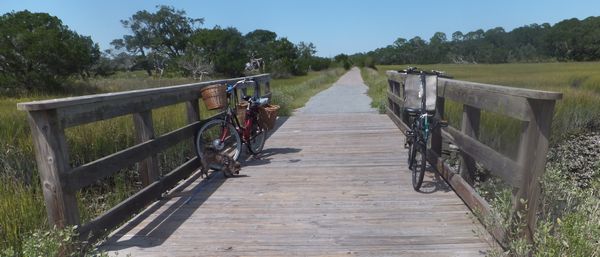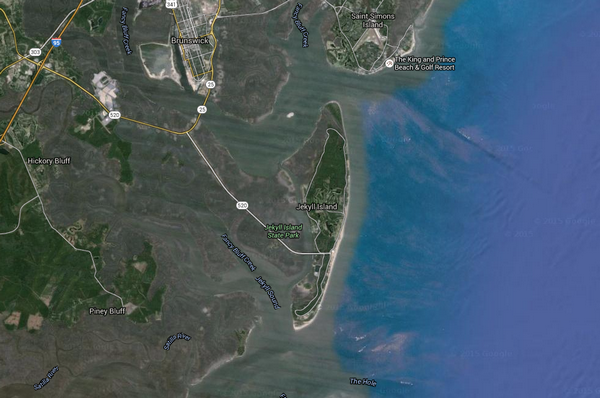Most public places require humans scoop the poop of their canine companions. Sometimes we come home from a doggy walk with a loaded poop baggy. Sometimes there just isn't a convenient garbage can in the places we wander. Having a little outside garbage can is handy indeed but winds can blow the garbage away, raccoons can get into it and finding a tiny garbage can with an odor proof, rain proof, wind proof lid is hard to find.
I solved the problem by upcycling a large coffee can with two lids. The bottom lid makes it look sharp and prevents rusty rings if it's left out in the rain. The top lid obviously snaps on keeping odors at bay. While it's wind proof and rain proof, it's not always raccoon proof. Matter of fact, it's hilarious to watch a wayward raccoon open the outside poop can, take one sniff and walk away in disgust. Typically they don't ever return again.
In this case, tired of looking at a coffee can sitting outside all the time, as if I have left errant garbage on my camp site, I used some cheap colorful tape to decorate the can. Dollar Tree sells this tape in oodles of designs for a mere $1. Arts and crafts on a budget. For a poop can. Next time I am gathering up my garbage to hike to the dumpster area, I empty the coffee can and cart it off. In the background, you can partially see my long handled grabber.
When I set up camp, I like to walk around my entire site and pick up all the minuscule garbage other campers leave behind. Having the outside garbage cans makes this super easy to accumulate, plus I can pop off the lid, walk with the can in one hand and the grabber in the other. In a few short minutes, my campsite is devoid of any manmade garbage. Often I spread out and clean the streets and paths, it just depends on how I feel. I am amazed at the spare change I find along the way. Apparently many people won't stoop to pick up dropped change anymore. We've been laughing ourselves silly because it seems every campsite yields at least 25 cents or more. It's like a tiny tip for cleaning.
Some days Harley dog has to work for his food, like pretending to be a vicious guard dog protecting his ride. This photo is from Jekyll Island in the sea islands, off the coast of Georgia. The island boasts over 20 miles of paved biking and hiking trails. I have to stop often to exercise my arms and hands, so I don't really get very far on my bicycle lately, but I sure have torture... I mean fun.
My injured hands are still healing. I often have to stop and doing rowing exercises with my shoulders. I miss the days when I lived on a sailboat at anchor and used a rowing dinghy to commute to shore. It was great fun exercise except on windy days, I could have quite a rough time trying to row fast enough to beat the head winds. You can see pictures of my old sailboat at this link. Sure I miss those carefree days of working hard, playing hard in far flung ports on life afloat, but I am glad I did it while I could before my body started falling apart. I don't think I could keep up with the rigors of sailing, living and working on boats anymore but I sure wish I had that boundless energy and fearlessness again. I used to work on larger sailing yachts as a career, but it was very hard work with super long hours but the ocean lifestyle suited me at the time.
Harley gets break from bicycle guarding to play toss the ball. Here he waits for it to be thrown. So many of my pictures show him dragging his leash along. Many public places require a doggy to be on a leash. Some don't specify whether the leash has to be attached to anything or anyone, so we sometimes *ahem* read the rules literally and let an energetic pooch have some ball chasing running fun while dragging his "dogs must be leashed" accouterment.
Jekyll Island as seen from outer space.
Below is an excerpt from the book "The Jekyll Island Club". It's amazing that I in my little old wheel estate on an efficient budget can visit and camp in such a fascinating place that for over 60 years was exclusive to only the wealthiest of the wealthy. Life is goof.
 |
From its inception in 1886, the Jekyll Island Club included in its elite membership the nation's wealthiest families, among them the Rockefellers, Pulitzers, Vanderbilts, and Morgans. Far from the hectic northern cities where the members tended their fortunes, this private island refuge off Georgia's coast offered the wealthy a tranquil change of pace.
Bringing together more than 240 fascinating photographs, Barton and June McCash trace the sixty-two-year history of this exclusive retreat whose members at one time were reputed to represent one-seventh of the nation's wealth. From the time of the club's opening, members came to Jekyll Island each winter to seek elegant leisure, arriving on yachts or in private train cars from New York, Boston, Chicago, and Philadelphia. Capturing the lives and amusements of the very wealthy, this evocative photographic history presents descriptions of elaborate costume balls and playful outdoor parties; the Rockefeller clan gathering at water's edge and J. P. Morgan lounging by the pool; Victor Astor's "patented beach boat" and the Goulds' private indoor tennis court; the Vanderbilts' yacht anchored offshore and the imposing "cottages" built by individual members.
During their stays, members amused themselves in a variety of pursuits. In the 1890s they organized bicycling clubs and held races on the beach. Hunting was also for a time a favorite activity and the island was regularly stocked with imported wildlife--pheasant, quail, turkey, and bucks. By 1919, however, the game committee had dwindled to one member, and prime hunting grounds had been cleared for golf courses and tennis courts. The hub of the island's social life, however, was the clubhouse, where members gathered in formal attire to converse, while drinking fine wine and dining on freshly caught game and local delicacies.
The seclusion that Jekyll Island offered was not impenetrable. On the day after Christmas in 1900, the country's fascination with technology could no longer be resisted, and the sound of a gasoline automobile disturbed the island's quiet glades for the first time. Despite the immense wealth of the club, it was not immune to the stock market crash of 1893 and the Panic of 1907. The club managed to survive World War I intact and enjoyed a "golden age" from 1919 to 1927, during which time it held its own against the increasingly popular Florida resorts. The stock market crash of 1929, however, initiated a death spiral. Membership declined steadily throughout the 1930s, and when the United States entered World War II, the club closed its doors forever.
Based on surviving club records, newspaper accounts, and letters and diaries of members and guests, The Jekyll Island Club chronicles an era when leisure was the preserve of the wealthy. For more than six decades the island, now a state park, served as a haven for millionaires. As one visitor described the Jekyll Island Club, it was "the only place of its kind in the world--and will never be again."






I try to pick up trash when I see it also. Didn't in the past, but since becoming more aware of this beautiful country I do what I can.
ReplyDelete